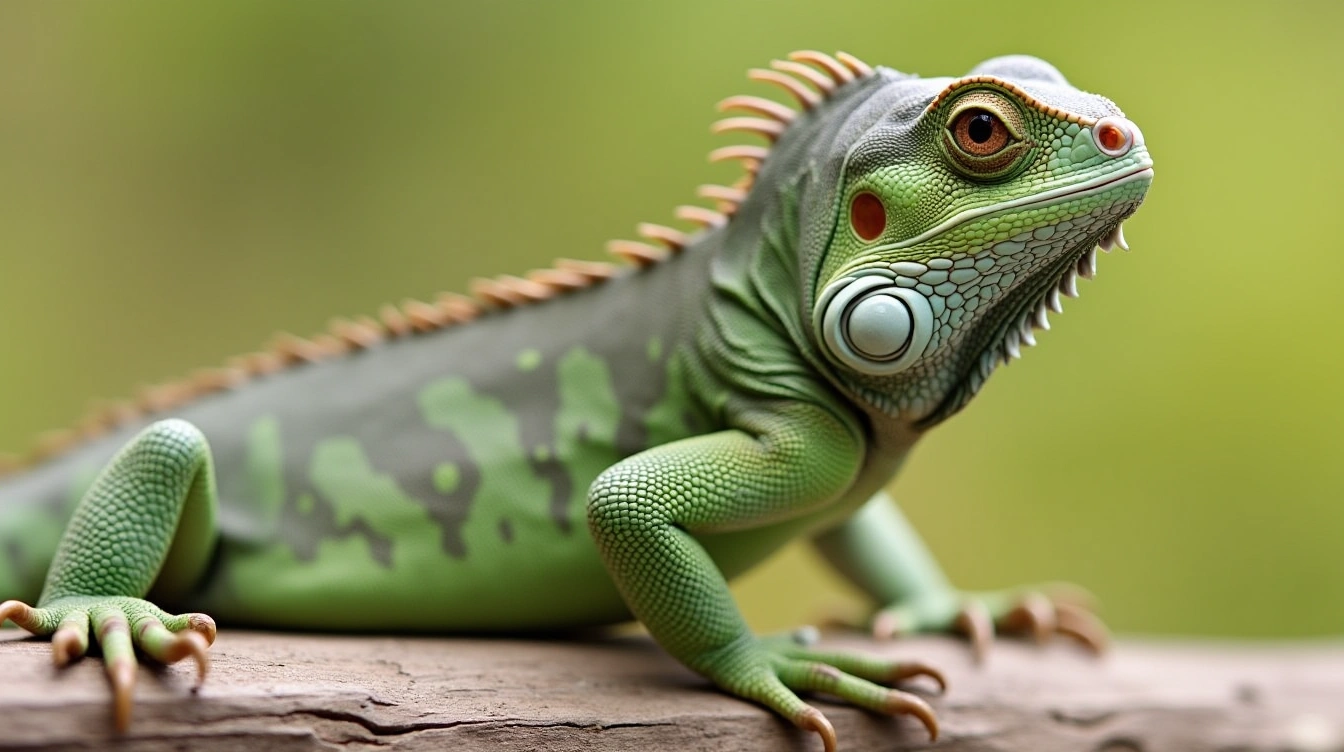Essential Components of a Healthy Iguana Diet
Achieving optimal iguana nutrition hinges on providing a balanced diet for iguanas rich in plant-based foods. Iguanas are predominantly herbivores, so their ideal iguana diet primarily includes a variety of leafy greens, vegetables, and some fruits. This plant-based makeup is crucial, as iguanas need high levels of calcium and fiber, with minimal protein and fat, to maintain robust iguana health.
Key components of their diet should consist of dark leafy greens such as collard greens, dandelion greens, and mustard greens, which supply essential vitamins and minerals. Supplementing with vegetables like squash and bell peppers helps diversify nutrient intake. Fruits like mango or papaya can be offered sparingly due to their higher sugar content. This approach helps prevent common diet-related health issues, such as metabolic bone disease caused by calcium deficiency or kidney problems stemming from excess protein.
Also to see : What are the signs that your pet budgie is healthy and happy?
Caring for iguanas without meeting these nutritional needs can lead to weakened immune systems, stunted growth, and other health complications. Therefore, pet owners should emphasize iguana nutrition centered on plant-based options to promote longevity and vitality. Regularly adjusting the diet to maintain this balance is vital for preserving your iguana’s overall well-being.
Recommended Vegetables, Fruits, and Supplements
Choosing the right vegetables for iguanas is crucial to maintaining their health. Leafy greens like collard greens, mustard greens, and dandelion greens serve as excellent staples because they provide essential nutrients without high oxalate interference. These vegetables for iguanas should form the bulk of the daily diet.
Also read : How Many Different Types of Domesticated Pets Exist Worldwide?
When considering safe fruits for iguanas, opt for options like mango, papaya, and berries. These fruits add variety and natural sweetness but should be offered sparingly—about once or twice a week—to avoid excess sugar intake, which can harm your iguana’s health.
Supplements for iguanas play a vital role, especially calcium and vitamin D3. Use calcium supplements at least two to three times a week to support bone strength. Vitamin supplements for iguanas, including multivitamins, should be given cautiously and preferably under veterinarian guidance to prevent overdosing.
Balancing your iguana’s diet with recommended vegetables, safe fruits, and proper supplements ensures nutritional completeness. Remember, a well-rounded iguana dietary recommendation boosts immune function and helps avoid metabolic bone disease, a common concern in captive iguanas.
Foods to Avoid for Pet Iguanas
Ensuring your iguana’s diet is safe and nutritious
When caring for iguanas, recognizing toxic foods for iguanas is crucial to maintain optimal health. Common dangerous foods for iguanas include avocado, rhubarb, and iceberg lettuce. Avocado contains persin, a compound harmful to reptiles, while rhubarb has toxic oxalates that interfere with calcium absorption. Iceberg lettuce offers little nutritional value and can cause digestive issues.
Additionally, many fruits like citrus should be avoided due to their high acidity, which upsets the delicate balance in an iguana’s digestive system. Feeding iguanas certain animal proteins or processed human foods can introduce excessive fats or harmful additives, affecting their metabolism and overall well-being.
Understanding food safety for reptiles means carefully reading ingredient labels and steering clear of processed foods that may contain preservatives or artificial substances. These can be difficult for iguanas to digest and may contribute to health problems such as liver damage or nutrient deficiencies.
Prioritizing natural, reptile-safe greens and vegetables, free from pesticides and additives, supports a vibrant and healthy iguana, preventing the severe consequences that improper foods can cause.
Feeding Frequency, Portion Sizes, and Habitat Considerations
Balancing an iguana feeding schedule is essential for maintaining their health. Juvenile iguanas generally require feeding daily, as their rapid growth demands consistent nutrients. In contrast, adult iguanas can be fed every other day, allowing their metabolism to regulate appropriately without overeating.
When it comes to portion control for iguanas, serving the right amount of food is crucial. A good rule of thumb is to offer vegetables and greens that fill the iguana’s bowl loosely packed to about the size of its head. Overfeeding can lead to obesity, while underfeeding may cause nutritional deficiencies, so monitoring intake regularly is advisable.
An appropriate iguana feeding environment supports healthy digestion and hydration. Iguanas thrive in habitats mimicking their natural conditions, which includes access to fresh water for drinking and soaking. Feeding times should be consistent and occur during daylight, aligning with their natural feeding habits. Ensuring humidity and temperature are within optimal ranges further supports digestion and overall wellbeing.
By carefully managing the iguana feeding schedule, controlling portions effectively, and optimizing the iguana feeding environment, owners can foster a healthier, more vibrant pet.
Expert Tips for Creating a Balanced Iguana Diet
Ensuring balanced nutrition for reptiles, particularly iguanas, demands careful iguana diet planning. Veterinarian iguana advice emphasizes variety as the cornerstone for maintaining optimal health. A diverse mix of leafy greens, vegetables, and occasional fruits meets essential nutrient requirements and prevents dietary deficiencies.
Veterinarians recommend consistently monitoring your iguana’s health through diet, observing weight changes, activity levels, and skin condition. Sudden appetite loss or lethargy can indicate nutritional imbalances or health issues. Adjusting the diet promptly upon recognizing such signs is crucial.
Diet must also adapt to special health conditions and life stages. For example, juvenile iguanas require higher calcium levels to support bone growth, while older iguanas may benefit from reduced protein to ease kidney stress. Consulting a reptile veterinarian ensures personalized care based on your iguana’s specific needs, safeguarding long-term well-being.
Incorporating veterinarian iguana advice into your iguana diet planning transforms feeding from routine to precise health management, securing a thriving companion through balanced nutrition for reptiles.





